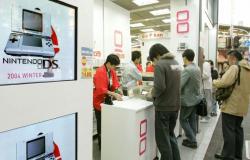
The automobile industry is in the midst of a revolution with the advent of electric cars. However, limited autonomy and recharge time remain major obstacles to their mass adoption. A technological innovation recently presented by Toyota could change the situation by promising a unlimited autonomy for these vehicles of the future.
Revolutionary technology for electric vehicles
During Japan Mobility Bizweek 2024 in Chiba, Toyota unveiled an invention that could shake up the market: portable hydrogen cartridges. These miniaturized devices are so light that they can be carried in a simple backpack. The idea is as simple as it is ingenious: quickly replace these cartridges when the vehicle’s hydrogen level is low, just like changing the batteries in a remote control.
This innovation is based on the technology of fuel cellswhich creates electricity from hydrogen. Unlike conventional batteries, this system offers several advantages:
- Fast refueling, comparable to that of a thermal vehicle
- Potentially unlimited autonomy thanks to interchangeable cartridges
- Reducing dependence on charging infrastructure
This advance could put an end to the debate on the autonomy of electric cars, currently limited to 300-400 km for city cars and 600-700 km for SUVs.
Current challenges of electric mobility
Despite the progress made, electric vehicles face several obstacles that hinder their widespread adoption. Among these challenges are:
| Challenge | Impact |
|---|---|
| Limited autonomy | Driver anxiety during long journeys |
| Cooldown | Complex travel planning |
| Infrastructure de recharge | Insufficient coverage in certain territories |
| Acquisition cost | Economic brake for many consumers |
These issues have pushed manufacturers to redouble their efforts to offer innovative solutions. Toyota, although a leader in hybrid engines, is now moving towards the development of 100% electric vehicles, like its competitors.
Hydrogen: a promising alternative to traditional batteries
THE fuel cell electric cars represent an interesting alternative to battery models. They operate using hydrogen, transformed into electricity by an on-board battery. This system offers several advantages:
First of all, refueling is carried out as for a thermal vehicle, at dedicated service stations. The “full-fill” time is comparable to that of a petrol or diesel car. In addition, the price per liter of hydrogen is approaching that of fossil fuels, which could facilitate the energy transition for motorists.
On the other hand, the main obstacle to the development of this technology remains its high manufacturing cost. For example, the Toyota Mirai, the most accessible hydrogen model on the market, is sold for more than 70,000 euros. This financial barrier further limits the mass adoption of these vehicles by the general public.
Towards a future without charging for electric cars
Toyota’s portable hydrogen cartridge innovation ushers in a new era of electric mobility. By offering a potentially unlimited autonomythis technology could solve one of the main obstacles to the adoption of electric vehicles.
However, challenges remain. The development of a hydrogen distribution infrastructure and the reduction of production costs remain major challenges. Manufacturers will also have to work on the recyclability of batteries and components linked to this technology to ensure a complete ecological transition.
If this invention keeps its promises, it could revolutionize our relationship with electric mobility. No more long stops at charging stations and the worry of running out of energy. Drivers could soon benefit from freedom of movement comparable to, or even greater than, that offered by current thermal vehicles.





